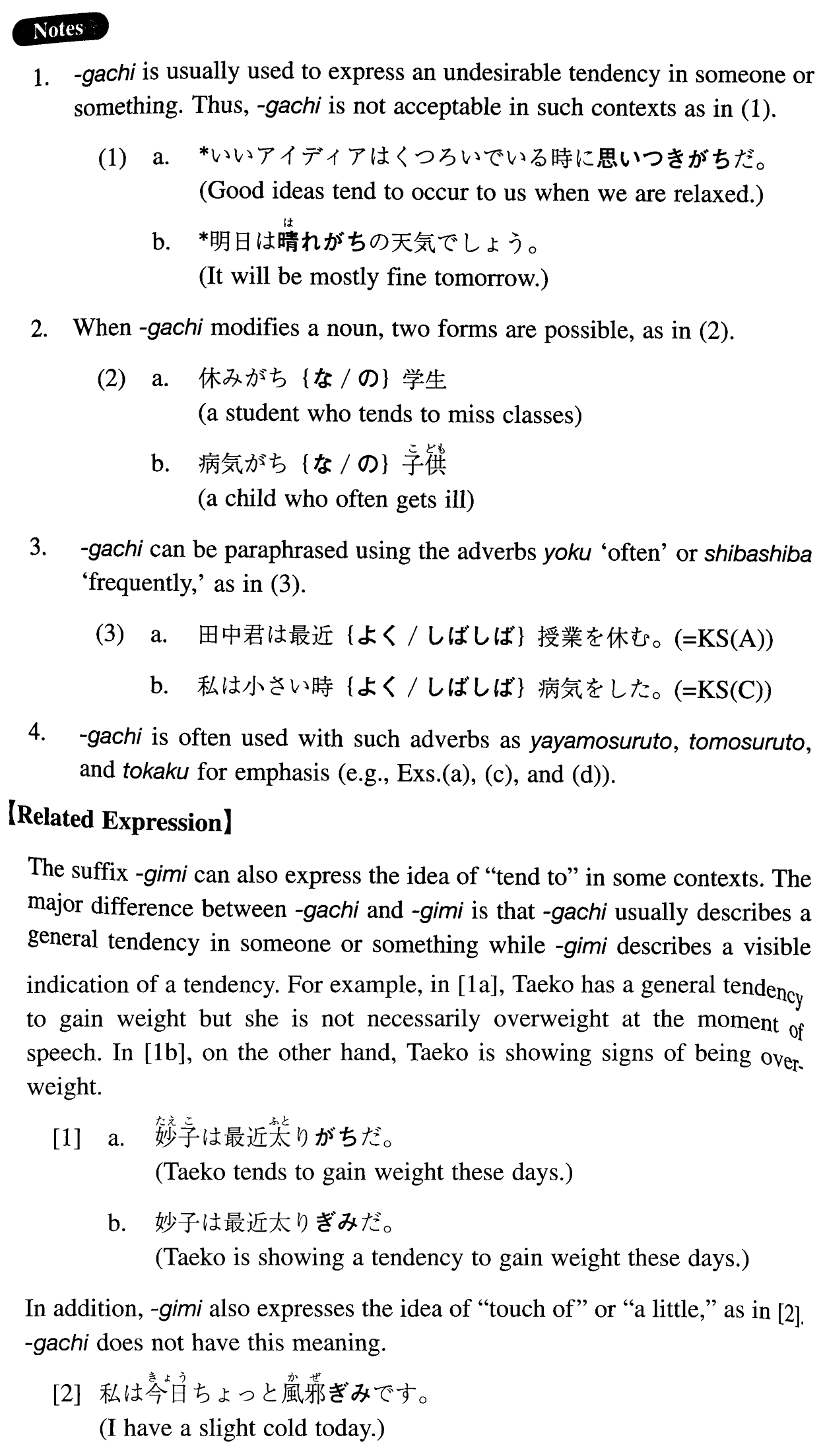
ホーム → 文法 → DoJG main menu → 中級編 → Intermediate Page 47
Suffix
| A suffix to express an undesirable tendency in someone or something. | Tend to; be prone to; be apt to; be liable to; be subject to; often |
| 【Related Expression: ぎみ】 | |
(ksa). 田中君は最近授業を休みがちだ。
Tanaka tends to miss classes these days.
(ksb). それは日本に短期間滞在した外国人にありがちな誤解だ。
That's the kind of misunderstanding which foreigners who stay in Japan for a short period of time are subject to.
(ksc). 私は小さい時病気がちでした。
I was often ill when I was very young.
(ksd). この辺りは昼間留守がちの家が多い。
Around here many people are often away from their houses during the day. (literally: Around here there are many houses which residents are often away from during the day.)
| (i) Vます | がちだ | |
| 忘れがちだ | Tend to forget | |
| (ii) Noun | がちだ | |
| 留守がちだ | Tend not to be home |
(a). 夏はややもすると塩分が不足しがちだ。
Our bodies are apt to lack salt in the summer.
(b). この時計は最近遅れがちだ。
This watch tends to lose time these days.
(c). 人はともすると自分の都合いいように物事を考えがちだ。
People tend to think (about things) in a way that suits themselves.
(d). 若いうちはとかく物事一途に考えがちだ。
Young people tend to think (about things) too seriously and narrow-mindedly.
(e). 私は最近週末もうちを空けがちです。
These days I seldom stay home even on weekends.
(f). これはアメリカ人の学生が犯しがちな間違いだ。
This is the kind of mistake which American students are apt to make.
(g). 明日は曇りがちの天気でしょう。
It will be mostly cloudy tomorrow.
(h). 私のクラスには病気がちの学生が何人がいる。
There are some students in my class who often get ill.
(i). 彼女は遠慮がちに話した。
She talked hesitantly (literally: with a tendency to hesitate).
